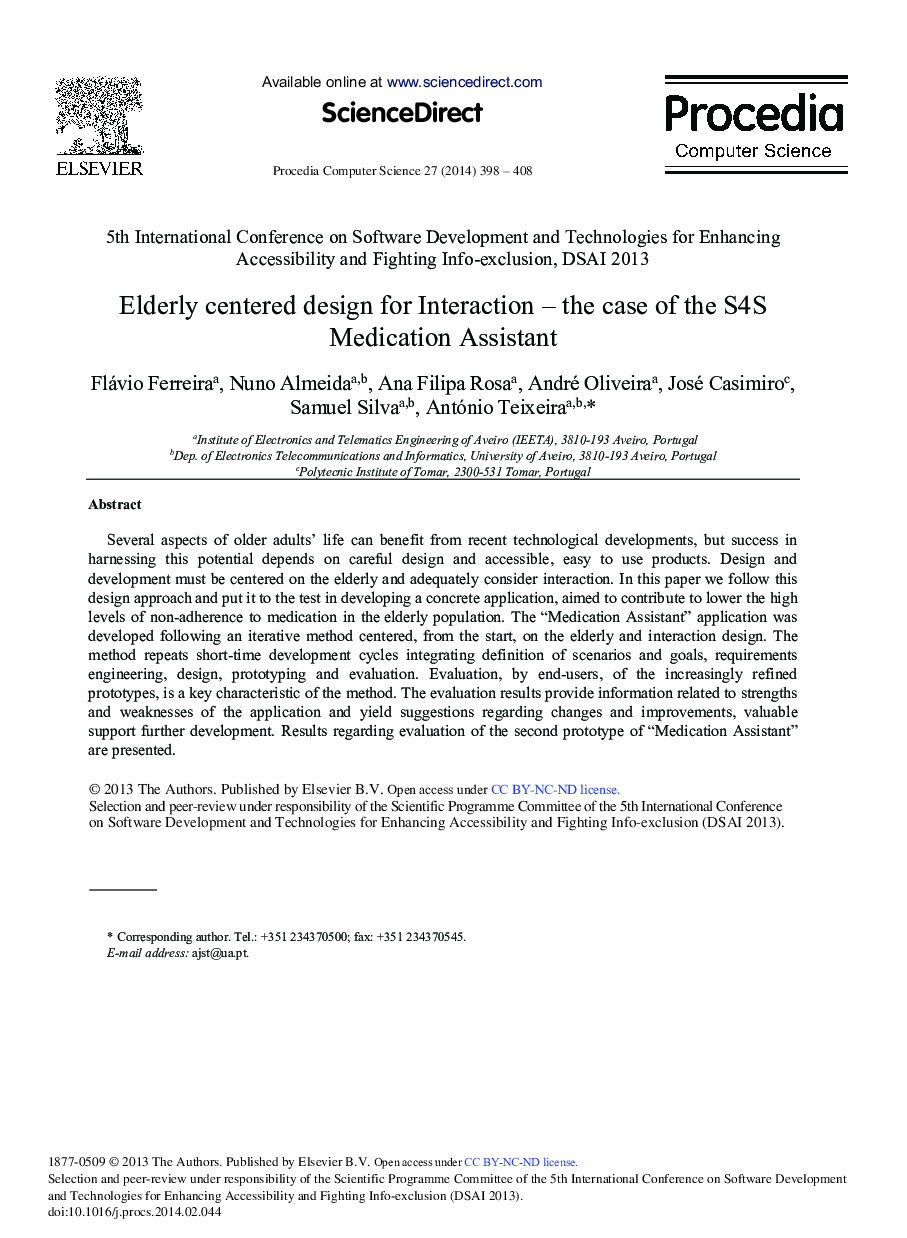| Article ID | Journal | Published Year | Pages | File Type |
|---|---|---|---|---|
| 485280 | Procedia Computer Science | 2014 | 11 Pages |
Several aspects of older adults’ life can benefit from recent technological developments, but success in harnessing this potential depends on careful design and accessible, easy to use products. Design and development must be centered on the elderly and adequately consider interaction. In this paper we follow this design approach and put it to the test in developing a concrete application, aimed to contribute to lower the high levels of non-adherence to medication in the elderly population. The “Medication Assistant” application was developed following an iterative method centered, from the start, on the elderly and interaction design. The method repeats short-time development cycles integrating definition of scenarios and goals, requirements engineering, design, prototyping and evaluation. Evaluation, by end-users, of the increasingly refined prototypes, is a key characteristic of the method. The evaluation results provide information related to strengths and weaknesses of the application and yield suggestions regarding changes and improvements, valuable support further development. Results regarding evaluation of the second prototype of “Medication Assistant” are presented.
